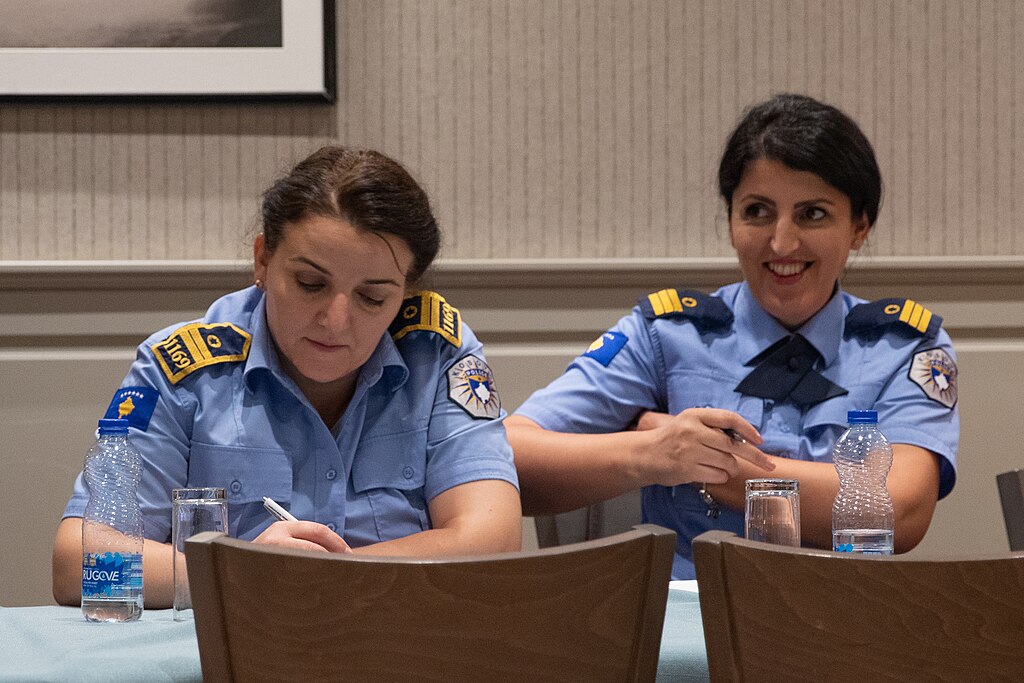Fighting the Gender Wage Gap in Kosovo: Efforts and Initiatives
 The gender wage gap reflects the difference in income between men and women, affecting productivity and economic growth. Kosovo has launched its national program for gender equality 2020-2024, intending to make gender disparity the focus of all the different strategies in the public and private sectors of society. One of the main pillars of the whole project is economic empowerment and social welfare. Together with the financial cooperation of international organizations, the country sets high expectations for the future role of Kosovar women in the labor market, potentially narrowing the gender wage gap affecting women’s development in Kosovo.
The gender wage gap reflects the difference in income between men and women, affecting productivity and economic growth. Kosovo has launched its national program for gender equality 2020-2024, intending to make gender disparity the focus of all the different strategies in the public and private sectors of society. One of the main pillars of the whole project is economic empowerment and social welfare. Together with the financial cooperation of international organizations, the country sets high expectations for the future role of Kosovar women in the labor market, potentially narrowing the gender wage gap affecting women’s development in Kosovo.
Impact on the Economy and General Income
The gender wage gap is a clear representation of the gender inequality that exists in every country, even if it looks different in each one. A study by the Regional Cooperation Council based on data from the Millennium Challenge Corporation (MCC) revealed that women in Kosovo earn 74 (USD 0.84) cents for every 1€ (USD 1.13) men earn. The largest gap appears in sectors such as mining and quarrying, where women earn 27 cents (USD 0.3) per 1€, and the only sector where women earn slightly more than men is in financial services, around 2 cents (USD 0.02) more than men.
Women in Kosovo make up around 20% of the labor force, representing the lowest work participation in the region. This results in a potential economic loss of 13% for the country and contributes to the gender wage gap. When women earn less, they have less money to invest in education and opportunities, which impoverishes life quality. The reasons for the existence of this income difference lie in the employment access barriers and gender roles experienced by women.
Causes for Gender Disparities
Workers perceive different salaries depending on their field of expertise. In Kosovo, women occupy fewer positions in higher revenue fields such as STEM and engineering, but dominate the education and healthcare fields. However, the higher income positions remain attributed to men. Women predominate in the working landscape in the sectors of public administration, education, health care, retail and wholesale trade.
These patterns directly contribute to the gender wage gap in Kosovo, as reflected in the results in national statistics and data analysis. This income gap exists largely due to the employment barriers and gender roles that limit women’s opportunities. The biggest one is child or adult care. Society establishes the role of women as primary carers, discouraging women from seeking employment and making them less productive for potential employers. Because they must balance childcare and work, many women turn to part-time jobs or unpaid household care, which increases their risk of poverty. This reinforces lower economic capacity and poverty risk.
Women in Kosovo experience higher rates of poverty compared to men. Female-headed households show higher poverty rates than male-headed ones, except in 2017. On an individual level, 18.9% of women lived in poverty, compared to 17.2% of men. While poverty declined during this period, the reduction was more significant for men, highlighting the economic vulnerability and persistent inequality faced by women in Kosovo.
Kosovo’s Program for Gender Equality 2020-2024
The Agency for Gender Equality (AGE) is a governmental body that promotes gender equality in the country. Together with the international support of the UNDP and the EU, it has created a strategic plan to eliminate these gender gaps in the country. The economic empowerment and social welfare measures addressed are central to driving change in the current economic situation.
The program wants to enhance women’s skills relevant to the labor market demands, especially in underrepresented fields. It introduces legal reforms to fight workplace discrimination, ensure equal parental leave and improve access to social services. Financial support and access to credit to foster women’s entrepreneurship. The legal system will strengthen gender equality laws and the state will demand regular progress tracking on improved employment conditions.
Evaluation Report
The AGE and the Prime Minister revealed the accomplished results of the four-year project on 21 October, 2024. The goals highlight women’s employment dropping from 29.7% to 17.2%. More than 12,000 women have received employment support, and 14,000 young people, 51% of whom are women, secured jobs through the Superpuna platform designed to connect job seekers with employers. Additionally, specific projects such as “Government for Families” helped provide allowances to nearly 60,000 future mothers, which allowed 100,000 women to open their first bank account.
Future Expectations
Kosovo has made significant progress by involving public institutions in the journey towards gender equality. International cooperation and support is crucial to guarantee success, and the strategies implemented offer potential for future change. Research shows that the incorporation of gender in national policies brings change to society. In the end, closing the gender wage gap in Kosovo will improve the economy and the life quality of a group that represents half of the global population.
– Sara Arias Saiz
Sara is based in Leipzig, Saxony, Germany and focuses on Business and Politics for The Borgen Project.
Photo: Wikipedia Commons
